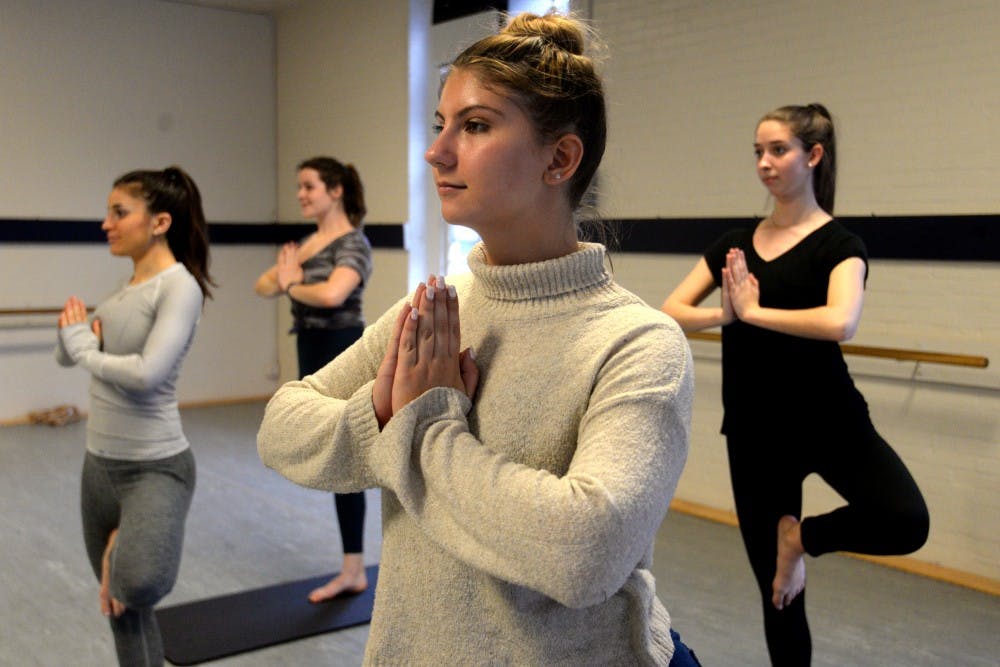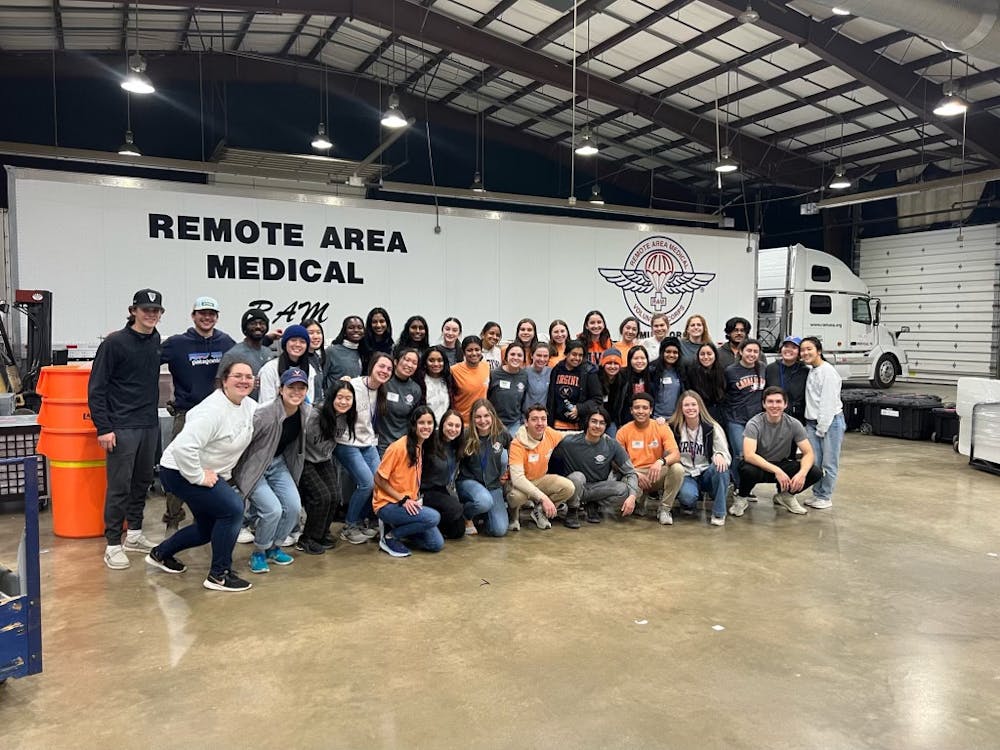College can be stressful, and adding one more commitment may seem to be a counterintuitive solution to a hectic schedule. However, taking the time to engage in mindfulness may be just as important to students’ well-being as any class or extracurricular activity.
The University provides many opportunities for students to examine their mental and physical states. In 2012, Paul Tudor Jones and Sonia Jones started the Contemplative Sciences Center with the intention of allowing faculty and students across the University’s 11 schools to explore contemplative traditions, practices and values in the context of different cultures and fields.
According to the CSC’s website, the CSC now sponsors movement and mindfulness classes on Grounds, meditation retreats and lists of courses that consider traditional and contemporary approaches to mindfulness. They also sponsor a student group, Contemplation@UVA, which promotes self-growth, healthy living and positive relationships.
“The major goal of integrating contemplation into the University of Virginia is to think about what is an expanded way that students go about learning,” said David Germano, executive director of the CSC and professor of Tibetan and Buddhist Studies. “[The] goal is to help students think about what they are doing in the classroom and what that has to do with what is going on with their lives.”
The potential for retraining the brain continues to grow as research projects led by the CSC examine the restorative effects of mindfulness in addiction, stress and experiential studies, as more individuals take an interest in their mental and physical wellbeing, according to the CSC’s website. The success of contemplative strategies, though, lies in devoting time to mindful practices.
“All the research these days tells us that where we thought we were fixed, like our brain structure, our personality, our body types and so forth, that there is tremendous room for plasticity, for a capacity to change,” Germano said.
One such study conducted by the Compassionate Schools Project aims to understand the physical, cognitive and emotional implications of daily contemplation. The study is introducing a specialized curriculum centered on personal understanding of mind and body into an elementary school in Louisville, Ky. On Grounds, the CSC is currently refining a first-year curriculum that considers what it means to be contemplative and flourish in academics and relationships.
The first-year curriculum will devote classroom time to a workshop-like environment, rather than lectures, and will cover topics such as compassion, attention and resiliency.
The Charlottesville community also provides several mindfulness resources outside of the University. For example, Common Ground promotes healthy living and inclusivity through yoga, meditation, acupuncture clinics and massage therapy available to people of all socio-economic classes, races, ethnicities and beliefs.
Paige Ryan, outreach and marketing director at Common Ground, said there are both immediate and long-term benefits to mindful practices. These lasting benefits include learning how to take a breath and create space when frustrated.
In addition, The Yellow Door is a mind-body lab co-founded by Erin Henshaw, a graduate of the College, and it offers unique wellness programs, such as guided yoga, meditation and Acu-Integral, a personalized treatment program incorporating diverse acupuncture techniques.
“It doesn’t really matter what is your own mindfulness, but when that is your everyday priority, then it begins to change your life,” Henshaw said. “Everything else seems to fall into place — once you know what’s that thing that really makes you feel good in your mind and your body.”
Henshaw also helped found the Mind Body Project, an initiative that concentrates on bringing therapeutic movement and healing practices to schools and companies. It attempts to connect with the calming side of the nervous system and rewire the brain. The University’s Career center and Johnson Elementary School are both involved with the Mind Body Project.
“This type of mindfulness, this type of science-backed programming integrates the mind and the body together towards making changes or just being aware of what we are doing in our lives,” Henshaw said.
Making sure people are in tune physically is key to the Mind Body Project’s goals. Henshaw mentioned that in order for people to change mentally, people need to explore the connections between the mind and the body in their daily lives.
“The idea is that we can use our brain to come up with solutions and different frameworks about how we want to live our life, but if we don’t connect with the breath and the body and actually feel it in our body, it’s very hard to make those changes,” Henshaw said.





